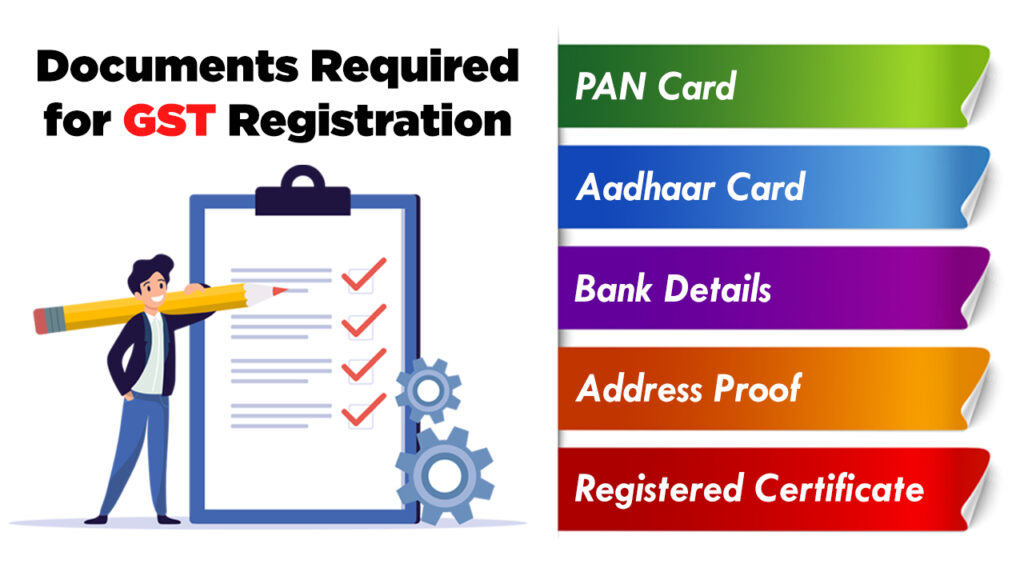Step-by-Step Process for Singapore GST Registration Explained
Step-by-Step Process for Singapore GST Registration Explained
Blog Article
Maximizing Tax Performance: Professional Tips on Navigating the GST Enrollment Labyrinth for Local Business
Navigating the complex landscape of Item and Solutions Tax Obligation (GST) registration can be a labyrinthine job for small companies aiming to optimize their tax effectiveness. In this discussion, we will discover expert understandings and workable advice that can empower tiny organizations to navigate the GST registration puzzle effectively and enhance their tax performance.
Qualification Standards
Qualification demands for Small Business GST Enrollment include particular requirements that organizations should meet to conform with tax obligation regulations. To certify for GST registration, a company must have a yearly turnover going beyond the limit set by the tax obligation authorities, which differs by country.

Documentation Needs
The needed documentation typically consists of proof of organization enrollment or incorporation, identification and address evidence of the service owner, pictures, financial institution account information, and evidence of the principal place of business. In addition, services require to offer details of their organization activities, including the services or products provided.
Keeping all needed documents arranged and readily accessible can streamline the registration procedure and help businesses conform with the demands effectively. Precise focus to information and adherence to the paperwork standards are vital for an effective GST registration procedure for tiny companies.
Timing Factors To Consider
Thinking about the crucial documentation demands have actually been thoroughly attended to, the following critical facet for local business starting the GST enrollment process is the strategic monitoring of timing factors to consider. Timing plays a critical function in GST enrollment, influencing not just compliance but also monetary facets of business. Small companies need to thoroughly plan the timing of their GST registration to optimize advantages and decrease possible risks.

Additionally, businesses need to straighten the timing of their GST registration with their operational preparedness. Sufficient preparation, such as upgrading accountancy systems and training staff, is important to effortlessly incorporate GST needs right into day-to-day operations. By purposefully handling timing factors to consider, local business can browse the GST registration process effectively and maximize their tax efficiency.
Registration Refine Tips
Efficiently navigating the GST registration process requires little companies to execute critical and aggressive enrollment process pointers. This includes business registration documents, proof of address, bank declarations, and recognition proofs of the organization owners.
In addition, understanding the limits and requirements for GST enrollment based upon the particular state or region where business runs is necessary. Some states have various turn over thresholds that set off obligatory enrollment, so being informed concerning these limits can help businesses prepare ahead.
One more useful pointer is to take into consideration looking for specialist aid from accounting professionals or tax professionals that focus on GST enrollment. Their expertise can streamline the process, decrease errors, and make certain conformity with all policies.
Conformity Best Practices
Navigating the GST registration process efficiently requires not just strategic registration process ideas yet also attentive adherence to conformity best methods to guarantee recurring regulatory placement. Local business should focus on compliance to stay clear of penalties and keep a great standing with tax authorities. One essential best technique is to keep thorough and exact records of all deals. This includes billings, receipts, and various other financial records that may be required for tax audits or conformity checks. In addition, remaining informed about any type of updates or adjustments to GST laws is crucial. Local business owners ought to on a regular basis evaluate federal government guidelines and seek specialist recommendations if needed my website to ensure they are meeting all needs. It is likewise suggested to submit GST returns on time to prevent late costs and charges. By incorporating these conformity finest practices right into their procedures, small companies can browse the complexities of GST enrollment with confidence and performance.
Verdict
In conclusion, little services can navigate the GST registration puzzle by ensuring they fulfill qualification requirements, collect called for paperwork, take into consideration timing effects, follow registration procedure pointers, and follow conformity best methods. By making the most of tax efficiency via correct GST enrollment, companies can boost find more their monetary management and procedures.
Navigating the complex landscape of Goods and Solutions Tax Obligation (GST) registration can be a labyrinthine job for tiny companies intending to maximize their tax obligation performance.Qualification needs for Small Business GST Enrollment encompass specific standards that services need to meet to abide with tax guidelines. The required paperwork generally includes evidence of company registration or incorporation, address and identification proofs of the organization owner, photographs, bank account information, and proof of the principal place of company. Furthermore, businesses require to offer information of their business activities, including the solutions or items provided.Successfully navigating the GST enrollment procedure calls for little companies to apply strategic and proactive registration procedure ideas.
Report this page